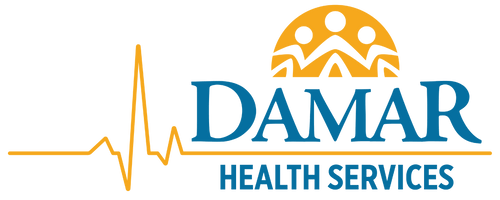On August 1, 2024, Damar Health Services earned the designation of Federally Qualified HealthCenter Look-Alike (FQHCLA) status from the Health Resources and Services Administration. Unique among child welfare organizations, the designation means the broader community can now access services ranging from primary-care visits and sports physicals to behavioral health and care coordination.
Damar initially established in-house health services to address key challenges for Damar’s client base of children and adults with intellectual and developmental disabilities, who typically face major difficulties accessing health services. In the past when these individuals did find providers, their symptoms and concerns were commonly attributed to their disabilities rather than to treatable, underlying medical causes.
Damar’s solution to this longstanding problem comes with an added benefit: Damar Health Services is also open to the broader community surrounding its location on Indianapolis’ southwest side, a medically underserved area including parts of Marion County where as much as half of the households are designated as “low-income.”
Damar is one of the very few child welfare organizations in the country to achieve FQHC Look-Alike status. Typically, Federally Qualified Health Centers are operated by large community health centers or hospitals.
“Earning the FQHC Look-Alike designation is significant for three reasons,” said Dr. Jim Dalton, president and CEO of Damar. “It helps our clients and their families, it helps residents of the community around Damar’s main residential campus, including Damar Village, our public housing for adults, and it provides the resources to allow Damar to recruit and hire talented healthcare professionals – something that was out of its reach before Damar became an FQHC Look-Alike”. Dalton adds,“Access to affordable healthcare for our clients and our community is of vital importance as Damar continually strives to expand its core mission.”
FQHCs receive federal funding to meet the needs of underserved populations and communities. Because the reimbursement model emphasizes quality, rather than number of patients seen, FQHC providers have the ability to spend more time with individuals – like those with intellectual and developmental disabilities – who require it.
For more information on what a FQHC is, click here.
